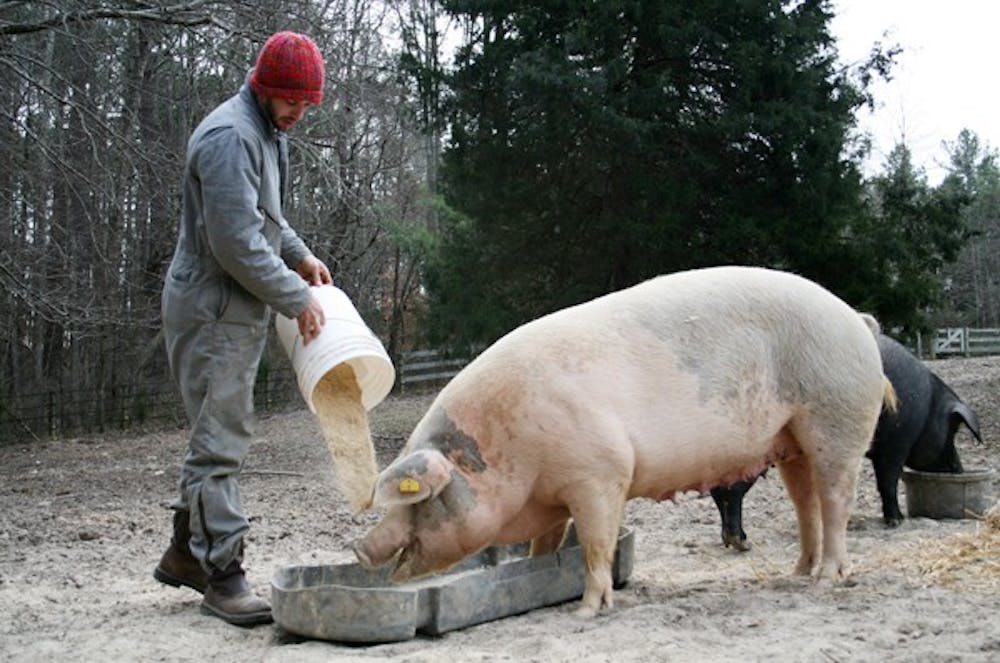A record-setting cold snap has deprived Chapel Hill farmer John Soehner of his cabbage, collards and brussels sprout crops.
“It’s the coldest winter I’ve seen,” Soehner said. “My collards never freeze. It’s a couple of weeks making no money.”
He and other N.C. farmers have had to adjust to a particularly cold start to the winter, but the state has escaped much of the pain other southern states have endured.
During the week of Dec. 28, average temperatures in N.C. cities were five to nine degrees colder than normal, according to the U.S. Department of Agriculture’s National Agricultural Statistics Service report.
In some areas of the country, damage to farms was drastic. In Florida, an estimated 30 percent of crops were destroyed by a 10-day cold snap, which might raise produce prices nationally, said Terence McElroy, the Florida Department of Agriculture spokesman.
But due to timing, the cold has had a limited impact on N.C. farmers this winter, said Brian Long, spokesman for the N.C. Department of Agriculture and Consumer Services.
“What would really concern us is if we were having a cold snap like this in late March or early April,” he said, because a spring freeze would affect many more crops.
Darian Sturdivant of D&L Farms, Inc. said his strawberry crop is healthy.
Although the recent temperatures nearly damaged the crop, he said he and other strawberry farmers have decided not to cover them with tarps to protect them from the cold.
“We might have done the wrong thing. We’re right on the border line,” he said.
Soehner wanted to cover his crops — it might have saved them — but the covers he ordered didn’t come in the mail on time.
“(The crops are) all fried. It looks like someone torched them,” he said.
Carl A. Matyac, Wake County agricultural extension agent, said the cold was nothing compared to destruction by rampant wildlife.
“There’s more damage from deer than from the recent cold snap we’ve been having,” he said.
But some farmers have still had to overcome obstacles presented by low temperatures.
“The cold weather slows down activity,” said Sarah Blacklin, the Carrboro Farmers’ Market manager. “There’s not that much that can be done with the ground.”
Harder ground prevents planting and delays the beginning of certain crop seasons, she said.
Winter is a season in which farmers don’t have much of their income at stake, Blacklin said. They can take advantage of the lapse in outdoor work to do taxes, order seeds or plan for the year.
Instead of harvesting his frosted greens, Soehner and his employees at Chapel Hill’s Eco Farm are collecting and selling wood dried out by the cold as firewood.
Soehner has also used his extra time to prepare a shiitake mushroom crop, drilling dime-sized holes into logs, implanting them with fungi spores and sealing them with hot wax daily.
In the fall, he’ll be able to sell one pound for about $10, he said.
“I’m not going to cry about the weather. This could be beneficial,” he said. “I’m going have a lot of shiitake mushrooms in the fall.”
Contact the City Editor at citydesk@unc.edu.
Cold snap hits farmers
Still, N.C. spared fate of other states

Will Soehner feeds the sows Tuesday morning in Chapel Hill on Eco Farm. DTH/Anika Anand


